
- Home
- News
- Analysis
- States
- Perspective
- Videos
- Education
- Entertainment
- Elections
- World Cup 2023
- Features
- Health
- Business
- Series
- Economy Series
- Earth Day
- Kashmir’s Frozen Turbulence
- India@75
- The legend of Ramjanmabhoomi
- Liberalisation@30
- How to tame a dragon
- Celebrating biodiversity
- Farm Matters
- 50 days of solitude
- Bringing Migrants Home
- Budget 2020
- Jharkhand Votes
- The Federal Investigates
- The Federal Impact
- Vanishing Sand
- Gandhi @ 150
- Andhra Today
- Field report
- Operation Gulmarg
- Pandemic @1 Mn in India
- The Federal Year-End
- The Zero Year
- Premium
- Science
- Brand studio
- Home
- NewsNews
- Analysis
- StatesStates
- PerspectivePerspective
- VideosVideos
- Entertainment
- ElectionsElections
- Sports
- Loading...
Sports - Features
- BusinessBusiness
- Premium
- Loading...
Premium
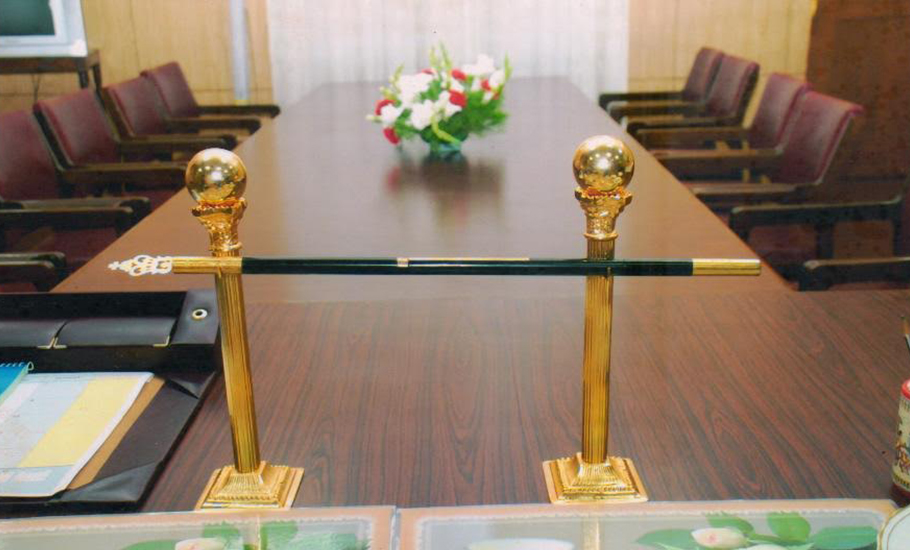
80 years on, Ratnam Pen Works continues to ink a swadeshi story

Rajahmundry, located on the banks of river Godavari, is famous for many things including its tourist attraction, history, economy and cultural heritage. Known as the Cultural Capital of Andhra Pradesh, Rajahmundry is a prosperous city. Dazzled by this cultural, economic and historical prosperity, it is easy for one to miss the narrow lanes of Kotagummam. It is easier still to miss the...
Rajahmundry, located on the banks of river Godavari, is famous for many things including its tourist attraction, history, economy and cultural heritage. Known as the Cultural Capital of Andhra Pradesh, Rajahmundry is a prosperous city. Dazzled by this cultural, economic and historical prosperity, it is easy for one to miss the narrow lanes of Kotagummam. It is easier still to miss the nondescript over-eight-decades old Ratnam Pen Works that dots the lanes of Kotagummam.
Since 1932, the hand-crafted pen manufacturing unit, Ratnam Pen Works, has been churning out fountain ink pens and ball pens that compete with the best in the business. The standards of what is manufactured here have a stamp of approval from Mahatma Gandhi himself. The approval, however, did not come easy.
Kosuri Venkat Ratnam, a highly skilled jewellery maker specialising in dyes and engraving, happened to meet Gandhi in Wardha in 1921. Ratnam presented a metal engraving to Gandhi. Impressed with Ratnam’s art, Gandhi advised him to make “inexpensive utility items for the common man instead — say anything from a pin to pen”.
The idea struck a chord with Ratnam who had gained some knowledge of pens having repaired British pens that belonged to Rajahmundry sub judge M Krishnamacharya. In his endeavour, Ratnam sought help from Andhra Scientific Company in Bandar, which provided him inputs on what all was needed to make pens.
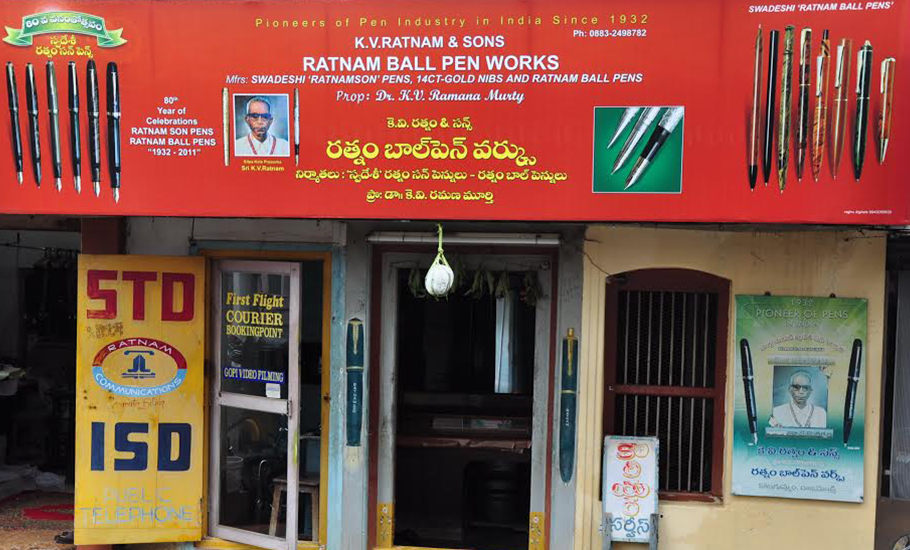
Thus began Ratnam Pen Works in 1932 in Kotagummam. The first pen was sent to Gandhi for approval in 1934. Fashioned on the lines of pens made in Britain that were imported and sold in Calcutta (now Kolkata), Gandhi rejected the pen after he came to know some material used in the pen was foreign. He insisted on 100 per cent indigenisation and said that the pens should be made only from local raw materials.
Ratnam reworked his plans and business model and finally came up with a pen that was completely Indian in nature for it made use of only locally found raw materials. This time Ratnam wasn’t disappointed. Gandhi not only approved the pen sent to him in 1935, but also wrote a letter to Ratnam saying, “Dear Ratnam, I must thank you for the fountain pen you sent me… I have needed it and (it) seems to be a good substitute to the foreign pen, one sees in the bazaar.”
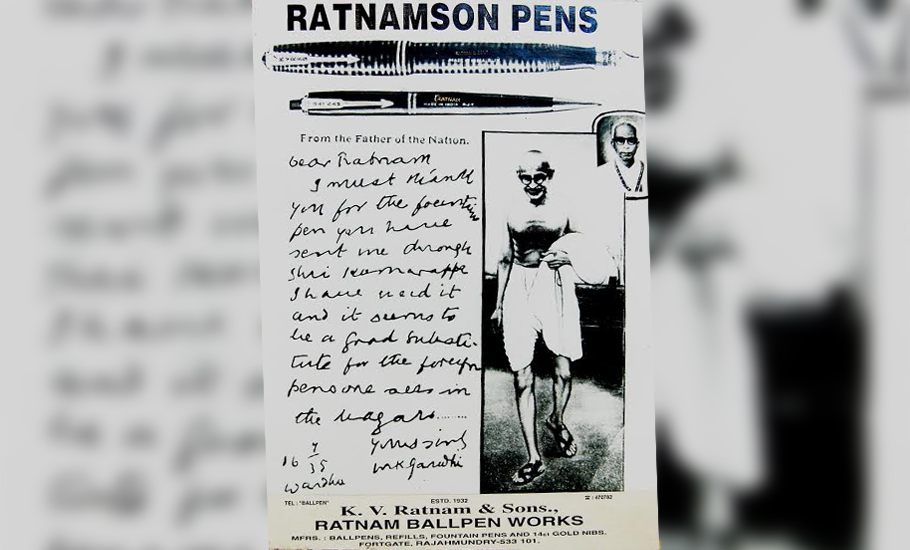
Ratnam Pen Works has symbolised India’s swadeshi movement led by Mahatma Gandhi.
The business has since passed on from Kosuri to his grandsons, Gopala Ratnam and Kosuri Chandrashekhar Ratnam, but a practice that has continued is the manufacturers giving a copy of Gandhi’s endorsement to the customers. They include a copy of Gandhi’s letter in the packaging of the pens, hand delivered or couriered to customers in India and abroad.
The pens found a readymade clientele due to the ‘Swadeshiness’ or indigenisation that became a symbol of the freedom struggle.
“It took a long time for my grandfather to convince Gandhi ji that all the materials used in the making of the pen were indeed local in nature,” Gopala tells The Federal, recollecting childhood conversations with his grandfather.
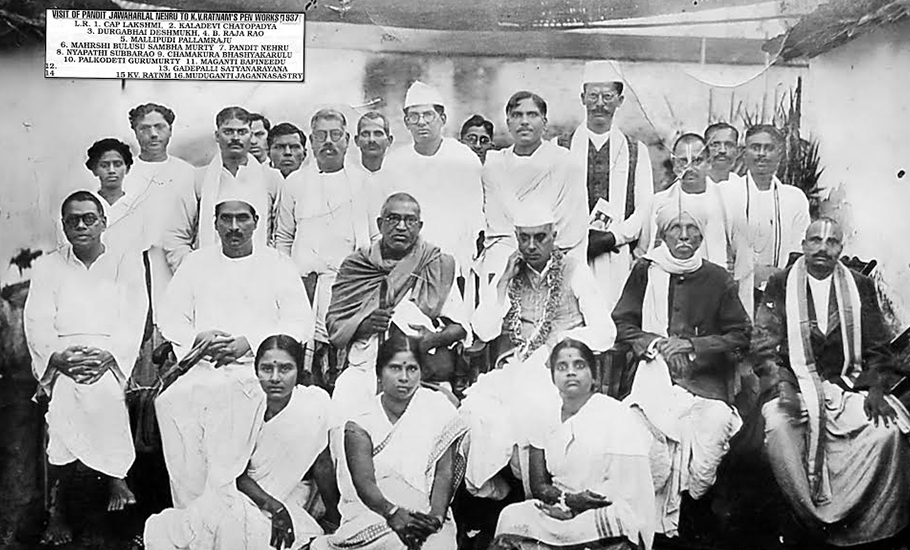
“Since then, till date, the production never stopped and we have never been in losses. Even during the pandemic, we had our regular orders and we maintained our business,” Gopala said.
The tiny pen making company has been able to hold onto its business with the help of loyal customers and those coming to them after word of mouth publicity, but has not been able to expand.
The company offers a range of pens that cost anywhere from a mere Rs 50 to upwards of Rs 2 lakh, depending on the material the pen is made out of. “There are pens that are made out of gold. They have golden nibs and clips and are custom-made on specific order,” Gopala says. The price of a pen with steel nib ranges from Rs 150 to Rs 1,500 and that of a silver-nibbed one is between Rs 25,000 and Rs 35,000. A completely gold pen costs about Rs 2 lakh.
All pens are handmade and can take two-three days to be manufactured.
In 2012, the India Book of Records recognised Ratnam’s son KV Ramana Murthy for making the smallest pen — 3.5 cm in length and 1.7 gm in weight. The pen had a 14-carat gold nib along with a pen point, clip and ring band.
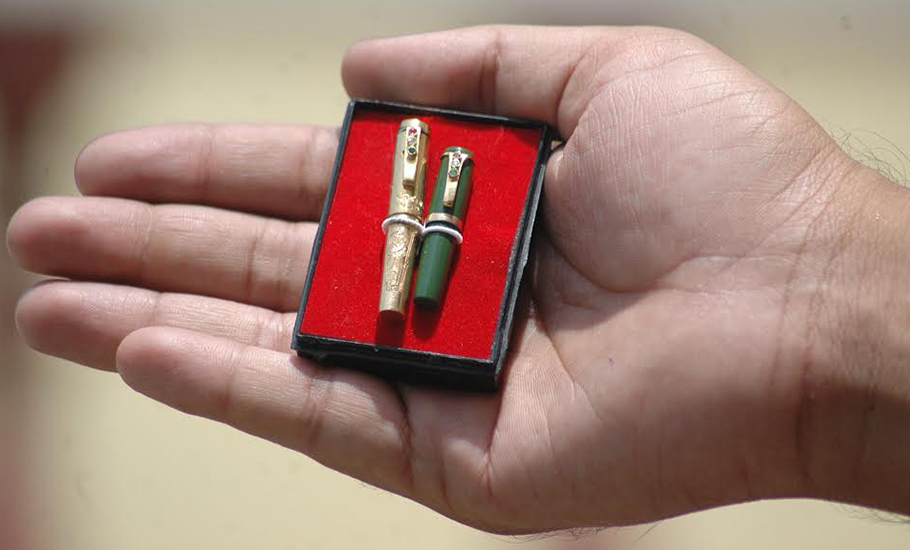
Gopala is in-charge of running the pen making facility and manages it with help of his younger brother Kosuri Chandrashekhar.
The pens manufactured by the company are still held in high regard. Loyal customers, despite being spoilt for choices, choose Ratnam Pens over other national and even international brands. “We get regular orders, from all over the country, and even abroad,” Gopala Ratnam says.
The handmade pens from Ratnam Pen Works are often the first choice of the Prime Minister’s Office and the Rashtrapati Bhavan when it comes to selecting gifting for visiting foreign dignitaries. Former Presidents Dr Rajendra Prasad, S Radhakrishnan, Fakhruddin Ali Ahmed, Zakir Hussian, VV Giri, Neelam Sanjeev Reddy, Dr Shankar Dayal Sharma and former Prime Ministers Jawaharlal Nehru, Gulzari Lal Nanda, Indira Gandhi and Rajiv Gandhi and were all proud owners of the Swadeshi pens.
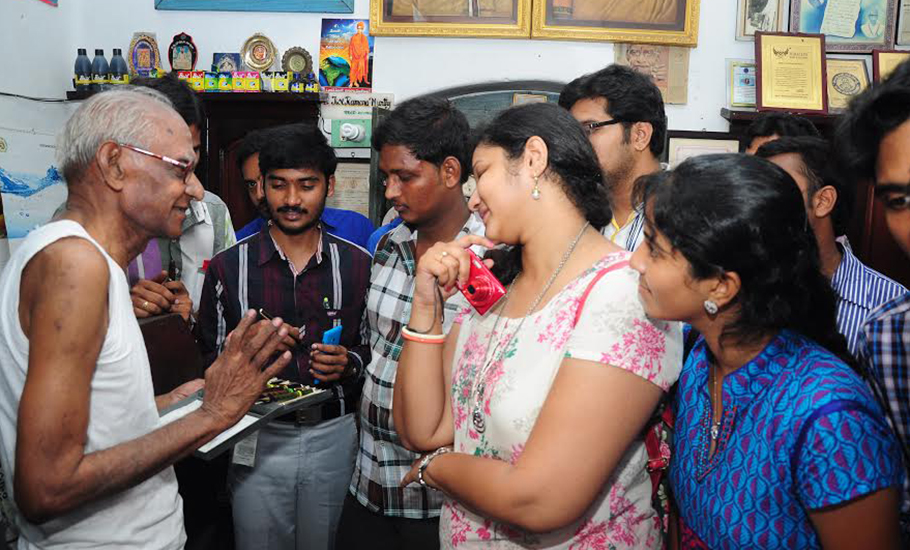
First Prime Minister Jawaharlal Nehru had in fact visited the factory as did many other leaders from different occupations. Pens from Rajahmundry adorned the desks of dignitaries like US Presidents, German Chancellors, Former USSR leaders, royalties from different princely states of India, and media barons in India and abroad.
Prime Minister Narendra Modi, himself a proud owner of a Ratnam Pen, gifted one to German Chancellor Angela Merkel. “That particular pen cost Rs 4,000,” Gopala Ratnam says.
“Today, we make between 300 and 400 pens a month. And all these are pre-ordered ones,” Gopala says.
Asked what holds him from expanding the business, Gopala says while he wants to expand and has a ready supply of capital and raw materials, it is the availability of labour that comes in the way.
“Workers are difficult to find, as most people want to get absorbed in different jobs at malls and as delivery executives,” Gopala says. “We give a stipend and train the workers, but there are no takers. Probably, the current generation likes to work in such ambience and not slog in factories that may also give the same, or sometimes even higher salary,” he adds.
“We have a very comfortable life for ourselves and carry on with our business from our comfort zone without much stress. But we are finding it very difficult to expand our business and grow as a bigger company and a more popular brand,” the pen maker from Rajahmundry, who once was a working journalist, says.

